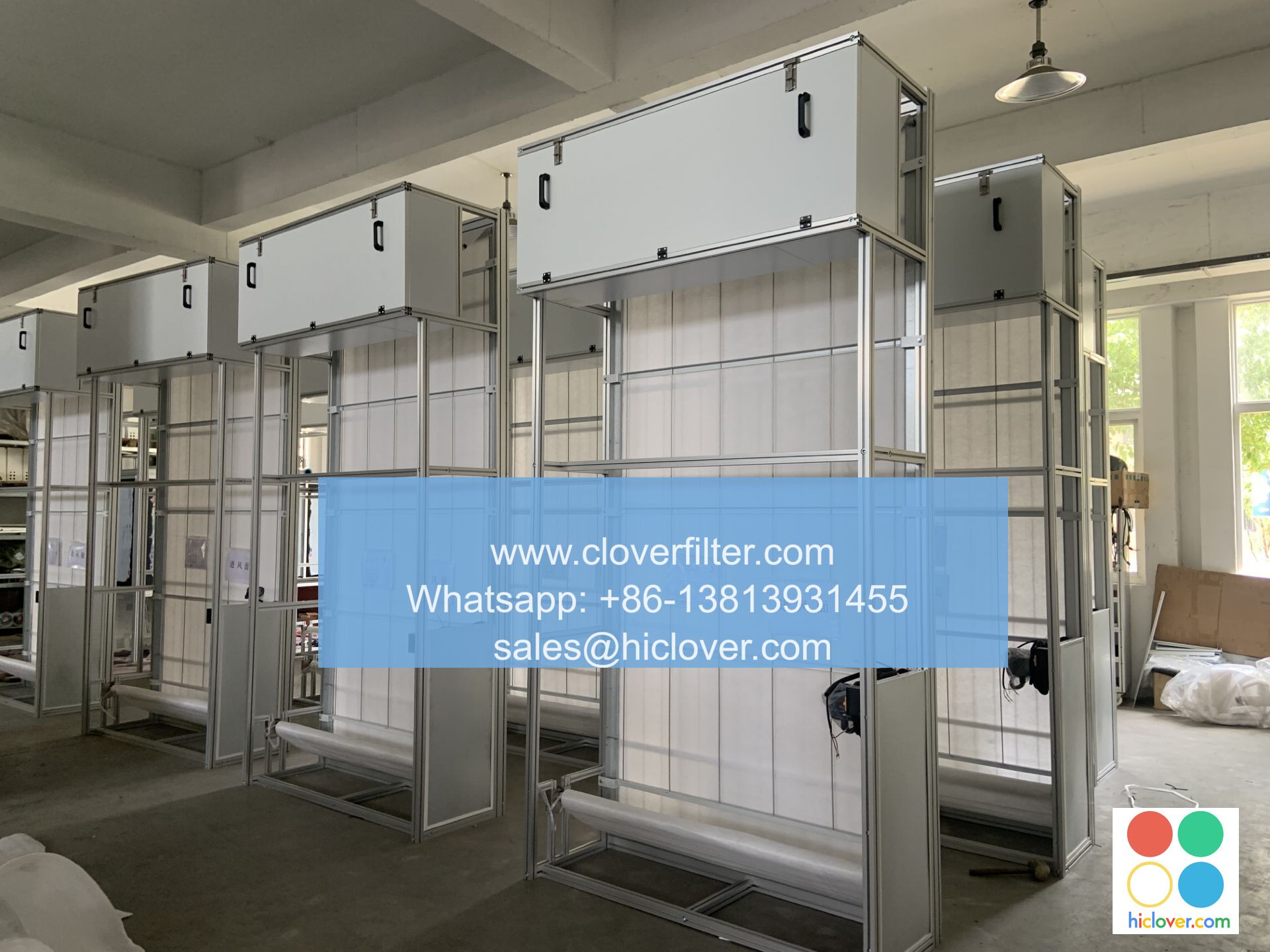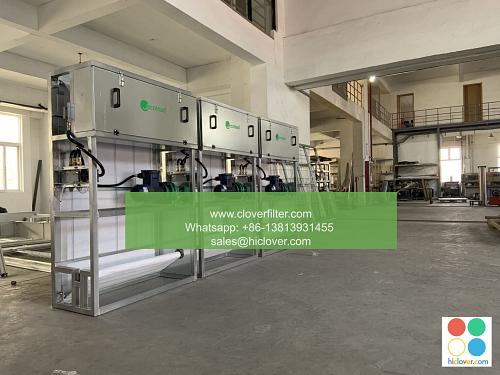The Importance of Air Filtration in Electronics Recycling: A Look at Hamilton’s Automatic Roll Air Filter

The electronics recycling industry has grown significantly over the years, driven by the increasing demand for responsible disposal of electronic waste. As the industry continues to evolve, it’s essential to focus on the importance of air filtration in electronics recycling facilities. One company that has made significant contributions to this area is Hamilton, with their Automatic Roll Air Filter. In this article, we’ll explore the importance of air filtration in electronics recycling and take a closer look at Hamilton’s innovative solution.
Air filtration plays a critical role in electronics recycling facilities, where workers are often exposed to hazardous airborne particles. The recycling process involves dismantling and shredding electronic devices, which can release toxic substances like lead, mercury, and cadmium into the air. Prolonged exposure to these particles can lead to serious health problems, including respiratory issues and even cancer. Effective air filtration systems are essential to minimize the risks associated with airborne contaminants and ensure a safe working environment.
Hamilton’s Automatic Roll Air Filter is designed to provide a reliable and efficient solution for air filtration in electronics recycling facilities. This system uses a roll of filter media that automatically advances to a new section when the existing one becomes dirty, ensuring continuous filtration and minimizing downtime. The filter media is specifically designed to capture particles as small as 0.3 microns, including dust, smoke, and other airborne contaminants. The Automatic Roll Air Filter is also equipped with a built-in particulate matter (PM) sensor, which continuously monitors the air quality and adjusts the filtration rate accordingly.
The benefits of Hamilton’s Automatic Roll Air Filter are numerous. Firstly, it provides a high level of filtration efficiency, capturing up to 99.97% of particles as small as 0.3 microns. This ensures that workers are protected from hazardous airborne contaminants, reducing the risk of respiratory problems and other health issues. Secondly, the system is designed for minimal maintenance, with the automatic roll advancement feature reducing the need for manual filter changes. This not only saves time but also reduces the risk of exposure to hazardous particles during maintenance procedures.
In addition to the health benefits, Hamilton’s Automatic Roll Air Filter also helps to improve the overall efficiency of electronics recycling facilities. By minimizing downtime and reducing the need for manual filter changes, facilities can increase their productivity and reduce costs. The system is also designed to be scalable, making it suitable for facilities of all sizes. Whether you’re a small, medium, or large-scale electronics recycler, Hamilton’s Automatic Roll Air Filter can be tailored to meet your specific needs.
Another significant advantage of Hamilton’s Automatic Roll Air Filter is its ability to adapt to changing environmental conditions. The built-in PM sensor continuously monitors the air quality and adjusts the filtration rate accordingly, ensuring that the system is always operating at optimal levels. This feature is particularly useful in facilities where the types and amounts of airborne contaminants can vary significantly throughout the day.
In conclusion, air filtration is a critical aspect of electronics recycling, and Hamilton’s Automatic Roll Air Filter provides a reliable and efficient solution for facilities of all sizes. With its high level of filtration efficiency, minimal maintenance requirements, and adaptability to changing environmental conditions, this system is an essential component of any electronics recycling facility. By investing in a high-quality air filtration system like Hamilton’s Automatic Roll Air Filter, facilities can protect the health and well-being of their workers, improve productivity, and reduce costs.
FAQs
Q: What is the importance of air filtration in electronics recycling?
A: Air filtration is essential in electronics recycling facilities to minimize the risks associated with airborne contaminants, such as lead, mercury, and cadmium, which can cause serious health problems.
Q: How does Hamilton’s Automatic Roll Air Filter work?
A: The system uses a roll of filter media that automatically advances to a new section when the existing one becomes dirty, ensuring continuous filtration and minimizing downtime.
Q: What are the benefits of using Hamilton’s Automatic Roll Air Filter?
A: The benefits include high filtration efficiency, minimal maintenance requirements, adaptability to changing environmental conditions, and improved productivity and cost reduction.
Q: Is Hamilton’s Automatic Roll Air Filter suitable for facilities of all sizes?
A: Yes, the system is designed to be scalable, making it suitable for small, medium, and large-scale electronics recycling facilities.
Q: How does the built-in PM sensor work?
A: The PM sensor continuously monitors the air quality and adjusts the filtration rate accordingly, ensuring that the system is always operating at optimal levels.

